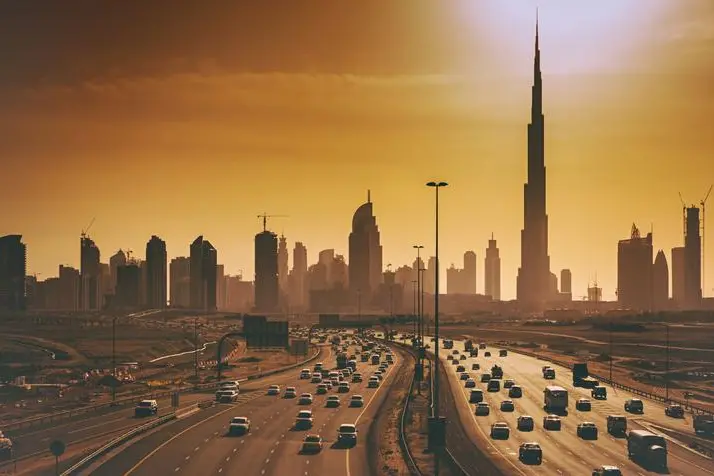PHOTO
The UAE's solid and diversified economy has softened the effects of both lower oil prices and weakened global demand for trade. This will also lead to prosperous years ahead for the UAE economy, according to a new report from the Dubai Chamber of Commerce and Industry (Dubai Chamber).
In addition to increased confidence, the UAE's economic outlook is buoyed by an upswing in government spending on infrastructure projects as part of the preparations for Expo 2020 Dubai. The net result is expected to encourage the banking sector to increase credit activity in non-oil-related business, growing the local business community's competitiveness and attractiveness to foreign investors.
The report predicted that the UAE economy would return to long-term growth in 2018 and beyond, demonstrating that despite the dwindling oil prices witnessed since mid-2014, coupled with weaker global demand for trade, the UAE has successfully strengthened its global budget with relative spending cuts at the government level from 2015 onwards. This has been achieved most notably by revoking subsidies and introducing value added tax (VAT) as of January 2018 to diversify the government's sources of income.
The report highlighted that the UAE economy bucked the downward trend affecting global markets in recent years. This was helped by a robust and stable economic environment; a business-friendly atmosphere; a world-class infrastructure and a strategic location that has helped establish the country as an international centre for business, financial and maritime services.
The country had relatively low external-debt-to-GDP ratio with average of 60 per cent over the period 2014-2016, yet it is expected to return to its average of 58 per cent by 2018, which is relatively low by international standards. In addition, both UAE fiscal and the current account balances are improving significantly over the same period and are expected to improve further in 2018 and beyond. This is in part attributed to the UAE maintaining a business-friendly environment; it scores highly in the Ease of Doing Business Index globally and leads the Index for Mena-region countries.
Sustained FDI inflows
According to the World Investment Report 2018, foreign direct investment (FDI) inflows to the UAE for 2017 increased to $10.4 billion, registering an annual growth of approximately 7.8 per cent and ranking the Emirates the as the 30th largest global recipient of FDI inflows and the largest recipient in the Mena region and GCC for last year.
The UAE's performance for 2017 bucked the trend, with the World Investment Report revealing that the combined global foreign direct investment (FDI) inflows decreased by 23 per cent to $1.43 trillion, despite the recovery in world GDP and trade.
Rebound in global trade
According to the latest IMF report on the world economy, global GDP growth strengthened to 3.8 per cent in 2017, with a notable rebound in global trade. It was driven by an investment recovery in advanced economies, continued strong growth in emerging Asia and signs of recovery in several commodity exporters on the back of substantial gains in oil prices.
In 2018 and 2019, global GDP is expected to grow to 3.9 per cent supported by strong economic momentum, favourable market sentiment and the expected positive repercussions of an expansionary US fiscal policy.
Copyright © 2018 Khaleej Times. All Rights Reserved. Provided by SyndiGate Media Inc. (Syndigate.info).





















